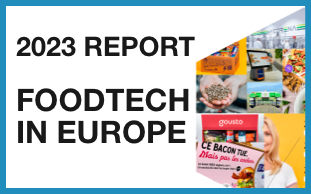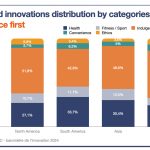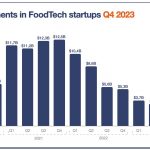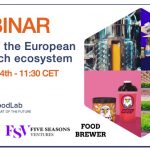These days, it seems that things are moving faster on the regulatory front than on the business side of things for alternative proteins. While some startups have received regulatory approval on key markets, we observe many red flags. Many politicians are trying to pre-emptively ban some technologies from appearing on their market.
Let’s start with startups receiving regulatory approval:
- Aleph Farms recently had its cultivated beef approved in Israel (a first for the country and a global first for beef).
- Last Summer, two startups (Good Meat and Upside Foods) received regulatory approval for their cultivated chicken in the US. Good Meat was already approved in Singapore.
- Several precision fermentation startups working on whey protein received approval in the US (most recently, Imagindairy).
- Some have already launched products under their brands or in partnership with leading CPG companies. That’s notably the case of Solar Foods’ protein (made through fermentation of captured-CO2) being used by Fazer (a Finnish confectionery company) for a new chocolate bar in Singapore.

As you can see, this is still quite limited. Others are facing delays or had their applications refused. Further, very few of these products are actually widely available. Most can only be found at upscale restaurants, where they are presented as rarities.
Observing this, we can’t say that the current state of the alternative protein industry is a threat to the traditional meat and dairy players. Many years will pass before alternative proteins can absorb the global growth in demand for meat and dairy products. However, in today’s tense political context, we observe a surge in the number of attempts to ban or limit the growth of alternative proteins, primarily by :
- Limiting the growth potential of plant-based alternatives by regulating namings
- Pre-emptively banning more advanced technologies such as cellular agriculture and precision fermentation.
In November, Italy banned cultivated meat. This decision didn’t make much sense, considering it should have been made at the EU level. Several US states are considering similar laws. Now, Italy and France are leading a coalition of 13 countries that want the EU Commission to launch a discussion about cellular agriculture at the EU level.
But things are not that bad. In the meantime, there has been a steep increase in public funding for research and infrastructure building around alternative proteins. That’s notably the case in the US, the EU, multiple EU states, and the UK.
All this gives a complicated image of what is happening. In our view, it is possible to divide countries into four groups:
- The traditionalists / pro-meat countries: These are countries that are clearly opposed to the development of any threat to their meat and dairy industry (lobby). Italy is an obvious example. We could add some of the countries that are part of the coalition mentioned above and many of the countries that are trying to ban the use of meaty (and cheesy) names for plant-based products, such as South Africa or Turkey.
- The hypocrites: countries which are both showing signs of support for alternative proteins and are also acting against the development of the industry. France, to my great disappointment, is a good example: you can find many alternative proteins with substantial public support (through public funding and grants), and in the meantime, both naming regulations for plant-based and multiple public figures seeking ways to ban cultivated meat. At the end of the day, all the money poured into these startups will only lead them to build their facilities and grow in another location.
- The careful supporters/realists are countries that have to manage a strong meat and dairy industry but seek to become leaders of tomorrow’s bioeconomy. The number and importance of the countries in this category can only be a source of optimism. The US, UK, China, and some EU countries such as Denmark or The Netherlands can be placed here.
- The enthusiasts are countries that are heavily betting on alternative proteins to build resilience in their food supply chain and eventually transform it into a source of influence abroad. Israel, Singapore, and some Gulf countries looking to host production facilities are clearly in this group.
Companies must consider much more than “mere” regulation regarding the right to sell alternative protein products. Indeed, the politics of some countries may evolve and make production there impossible while others are creating the conditions (with incentives) to produce in their countries without intending to let their consumers access the product. Finally, some startups are blurring the lines and announcing things that are not factually true. In conclusion, in this mess, investors, entrepreneurs, and leading companies need to tread carefully and plan well ahead.







